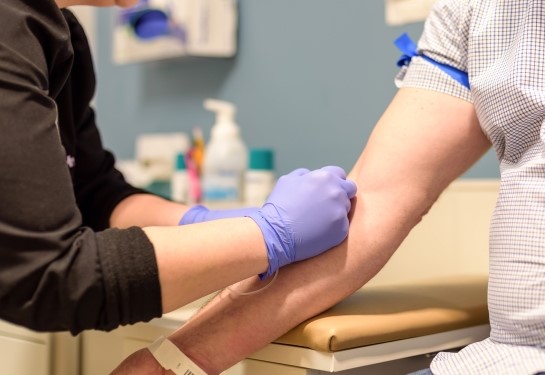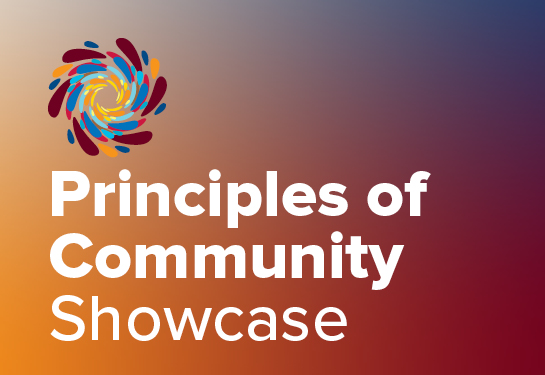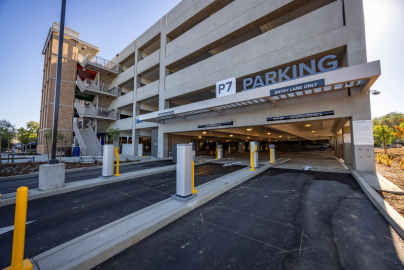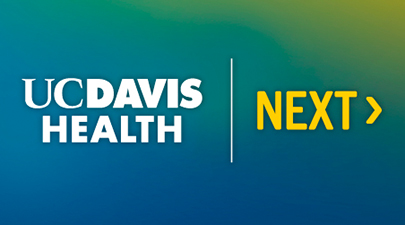Faint of heart: Phlebotomist soothes patient through scary blood draw
Imagine one minute you’re undergoing one of the most routine medical procedures out there. In fact, you’ve done it many times before. Then imagine within seconds you can’t stand or even hear.
That’s what happened when one patient had her first (and hopefully last) vasovagal response to a blood draw.
The patient, who asked to remain unnamed, is also a UC Davis Health employee. The moment wasn’t lost on her; not only does she want to recognize the phlebotomist who stepped up, but she identified a valuable lesson for her own clinical work.
A typical blood draw, until…
The patient arrived at the Midtown clinic lab in mid-June for her scheduled blood draw. The order was for seven vials of blood, for research.
On the sixth tube, her hearing suddenly became fuzzy, her skin instantly clammy. A sense of lightheadedness took over. Nausea struck. She felt close to fainting.

“I’m not feeling well,” she told Paris Jones, certified phlebotomy technician float, as the last tube was complete.
Jones jumped into action. Not a moment later, she offered the patient a cup of water and held a bag of ice at the back of her neck. She stroked her hair and guided her through calming breath techniques.
For a couple more minutes, the patient could barely hear and still felt faint.
“It’s okay. It’s a vasovagal response,” Jones explained softly. "The ice will help—and water too, in small sips."
Vasovagal syncope occurs in some people during blood draws due to a sudden drop in blood pressure and lowered heart rate.
As the fuzz in her ears recedes, the patient felt sheepish. "I'm never like this—2 or 3 tubes, I'm fine."
Jones continued to reassure her.
“She helped me feel less embarrassed, more understood, and well taken care of. I did not feel an ounce of frustration or impatient, rushed energy from her,” said the patient. Within five minutes, her hearing was back, nausea nearly gone. She felt clearheaded.
I chose to work in health care because I enjoy caring for people and alleviating anxieties toward medicine."—Paris Jones, certified phlebotomy technician II
The patient repeatedly thanked Jones, who accepted kindly while also brushing it off good-naturedly.
“I want patients to know that, for medical professionals, it is no big deal,” said Jones later. “I chose to work in health care because I enjoy caring for people and alleviating anxieties toward medicine. This includes making patients feel like their condition is nothing to be embarrassed about, no matter how minor or severe it is.”
With that, the patient was ready to complete her visit, business as usual.
An unexpected gift
In hindsight, the patient was so moved by Jones’ kind approach that she chose to submit a compliment via Patient Relations. She wrote that the experience refreshed her own compassion toward patients at the MIND Institute.

She admitted she sometimes forgets how stressful even these "smallest" of health care encounters can be for adults, let alone kids. For example, MRIs can be overstimulating or the sting of a needle can cause alarm. Even a full bladder for urine samples can seem like a lot.
“I'm ever grateful for the reminder that blood draws can be scary,” she said. “Likewise, I'm grateful to see someone who handles even the most ‘bread and butter’ work of medicine with incredible empathy.”
Within a matter of moments and under pressure, Jones’ empathy and soothing demeanor earned the patient’s trust. When asked what helps her stay calm in these scenarios, she credited a variety of roles she's held at UC Davis Health, including senior trauma technician in the Emergency Department, where she was trained and assisted in level 1 trauma response.
“When you have treated patients in those situations, everything else seems less eventful,” she said. “I am able to stay calm in the moment simply because I must. UC Davis trained me to respond in this manner.”
Well done, Paris Jones!





